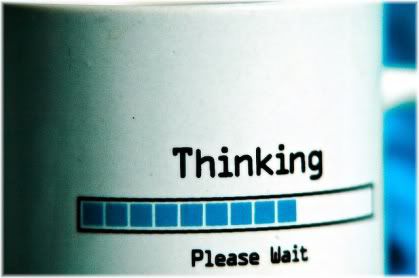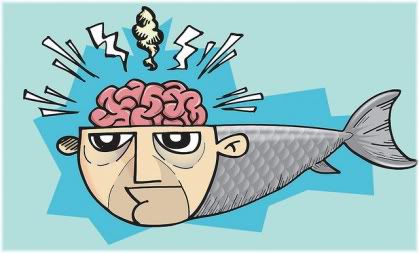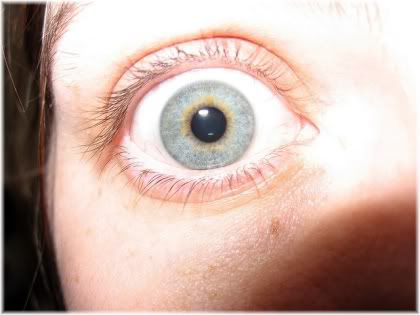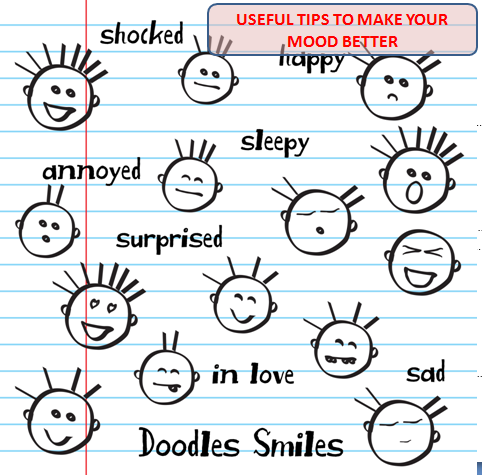In this article, you will find 21 useful tips that you can use to improve your mood and make you feel better about yourself.
Although you may not be able to incorporate all of them into your life, try to pick at least two or three and then use them on a daily or weekly basis.
As a bonus, at the end of this article you will find a short section on how different types of foods can affect your mood!
1) Be Curious

A study published in a psychology journal showed that people who are interested in other people and other things are likely to be more intelligent and happier than those who have little or no interests.
The key is to do activities that are outside of your comfort zone. So be adventurous, and try doing something new every once in a while.
2) Think Fast

Research has shown that depression is characterized by slow thinking. People who think or read quickly were more likely to feel creative, happier and energetic afterwards. This was true even if the content was depressing to begin with!
3) Give Thanks

Being grateful for what you have in your life can make you happier. Studies have shown that people who express gratitude at least 1-3 times a week, are much happier than people who are not grateful for what they have.
So take a few days each week to think or write about the things which you are grateful for in your life.
4) Monitor Your Thoughts

Most people replay the same negative thoughts over and over again. These thoughts can cause a person to become depressed, anxious and stressed.
Next time you have one of these repeating negative thoughts, write it down on paper. Then ask yourself, is this thought making you feel bad? Where did you learn this thought from? Is this thought true?
By analyzing your negative thoughts, you may be able to come up with something more positive to replace it with. Keep repeating that new thought, and eventually you will shed you old negative thought patterns.
5) Don’t Dwell on the Past

Sometimes, it’s better not to spend time worrying about the mistakes that you have made in the past, or mistakes which you might make in the future. Thinking about either of these can make you anxious about the future, or prolong a depression from the past.
If you find yourself worrying about things in the past, present or future, distract yourself by doing something constructive instead. For example, play with your pet, do some exercise or go out with your friends.
6) Act the Part

According to one psychological study, acting in a way that you would like to be can have a positive impact on your mood.
The study found that shy people who were told to act extroverted had more fun at a party and felt more confident compared to those who were not told to act extroverted.
7) Talk to Strangers

Talking to strangers can be a powerful way to improve your mood. This occurs because when we meet someone for the first time, we naturally try to be nice and cheerful in order to make a good first impression. And, when you act in a good mood, you soon begin to feel that way.
8) Help Other People

An American study found that gestures as small as washing your friend’s mug or buying a friend dinner, can actually improve your mood.
The study found that people who performed the most acts of kindness throughout the week, were significantly more happy than those who helped less or did not help anyone at all.
9) Be Careful Who You Hang Around

Being around negative unhappy people can bring you down and make you feel equally unhappy. Negative energy is infectious, but so is positive energy.
So to improve your mood, spend as much time as you can around the happy people in your life.
10) Exercise

Exercise not only keeps your body fit and healthy, but it can also improve your mood. This is because when you exercise, “feel-good” neurotransmitters are released in the brain.
These can help to shed negative nervous tension and improve your mood for the whole day. The best time to exercise is early in the morning because this can help to make you feel energized for the day ahead.
11) Breathe Deeply

People who suffer from depression are usually very shallow breathers. Running and meditation can both help to encourage deep diaphragmatic belly breathing.
By breathing deeply, you cause the release of neurotransmitters in the brain that are associated with happy calm feelings and reduced levels of stress.
12) Get Some Omega 3

Most people are deficient in omega 3 fatty acids and consume too many omega 6 fatty acids. Omega 3 has a powerful effect on the brain, and can increase your ability to concentrate and also improve your mood.
So eat some oily fish like salmon a few times each week, or if you don’t like fish, take some fish oil capsules instead. But be careful not to overdo it, as too much omega 3 can suppress your immune system.
13) Eat Fat

The large majority of your brain, and the cells in your body, are composed of fat. A low-fat diet can cause depression, frustration and anxiety.
The best type of fat is saturated fat, as this makes your cells much more resistant to the harmful effects of free radicals. Good sources of saturated fat are butter and coconut oil.
14) Drink Pure Water

Dehydration can make you feel tired and lazy, but water can help to restore your energy levels.
The most common times that people are dehydrated are in the morning and after exercise. So make sure that you drink some filtered water when you wake up and also before and after exercising.
15) Buy Yourself a Gift

A study found that women who bought themselves flowers reported feeling happier and less anxious than those who did not. So if you are feeling down, take your mind off your worries and treat yourself!
16) Listen to Music

Listening to music that you like can affect the pleasure center of the brain, the same area that’s activated when you have an orgasm.
Listening to your favorite tunes can almost instantly put you in a good mood, and the positive effects can last long after the music is over.
17) Smell Something

Smelling a scent that appeals to you can improve your mood. This occurs because the areas of the brain that process smell and emotion are linked, so the functioning of one area directly affects the other.
After you have been exposed to a scent for around 20 minutes you will no longer smell it, but the good mood will stick around.
18) Watch a Funny Movie

We all know that watching a funny movie can be a good way to improve your mood, but did you know that laughing is good for you?
Research has shown that laughing not only helps to reduce stress, but it also makes the body healthier by increasing the number of immune cells.
19) Don’t Eat Junk Food

Although junk food can improve your mood when you eat it, many people are unaware that later their mood will suffer.
This is because most junk food is made of sugary simple carbohydrates that give the eater a quick “sugar rush”. However, after this rush is over and blood sugar levels drop, you are likely to feel tired, depressed, irritable and in a bad mood.
If you are intolerant to any of these foods, and are unaware of it, you may also experience cravings and hangover like symptoms for several days when you stop eating that food.
20) Get Some Sun

Sunlight is an excellent way to get some vitamin D, but it can also improve your mood. Researchers have found that depression is most common during the winter months when sunlight is scarce, and in people who stay indoors all the time.
Sunlight helps to increase serotonin levels in the brain, which is an important mood chemical and can also help you to sleep better. But don’t over do it. Aim for around 10-20 minutes in the sun at least 3 times a week, and don’t wear sunscreen as otherwise you won’t get the benefits.
21) Get a Pet

Recent research has found that cat owners are less likely to suffer from heart attacks than those who do not have cats. Cat, and pet owners in general, are more likely to feel happier and be in a good mood throughout the day than those who do not have any pets.
Although the exact reasons for this are unknown, it is believed that stroking an animal’s fur is calming to the nervous system and can therefore help to reduce stress levels and improve your mood.
Bonus – How Food Affects Mood
Whilst most people know that the foods they eat can affect their health, what is less well-known is that your diet is intimately linked with the way you think, feel and act.
If you eat an unhealthy diet filled with lots of sugary carbohydrates for example, you are more likely to suffer from memory loss, a depressed mood and accelerated weight gain.
If however, you eat a healthy diet filled with complex carbohydrates and adequate protein, then you are likely to experience an improved mood, be able to focus better and lose weight quickly.
So it is important to see the food that you eat not only in terms of nutrition, but also in terms of the way that food will enable you to function and the way that it will make you feel. Below you will find some examples of how food and your diet can affect your mood.
Foods That Increase Sexual Arousal

Certain foods, called aphrodisiacs, can increase your sexual appetite so to speak. Adding foods such as bananas, oysters, ginseng and caviar to your diet can all help to get you in the mood for sex or improve sexual performance.
Foods That Make You Sleepy

Milk contains tryptophan which can make you feel sleepy after drinking it, and the same effect can also occur after eating turkey.
Certain carbohydrates, such as pasta, contain exorphins (a type of sedative) which can also make you feel sleepy after eating them. But be careful, because if your diet contains lots of carbohydrates you will gain weight quickly and experience reduced daytime energy levels.
Foods That Increase Alertness

Protein foods such as fish, chicken and eggs contain tyrosine, which is an amino acid that increases the production of dopamine, norepinephrine and epinephrine. These are neurotransmitters that can increase alertness and energy levels. In addition to this, protein can also help to accelerate weight loss.
Caffeine found in tea and coffee can also help to keep you alert or prevent you from falling asleep.
Foods That Improve Memory

Eating or drinking sugar when you are trying to remember something is not a good idea, as sugar can disrupt the formation of memory forming proteins in the brain.
Other foods like blueberries, avocados, oranges, spinach, bell peppers, brewers yeast, broccoli, ginseng and oily fish eaten as part of your daily diet, can all help to improve memory and concentration.
These effects occur largely due to vitamin C which helps to protect blood vessels from oxidative damage, and the B vitamins and fatty acids that help to protect the nerves.
Foods That Make You Depressed

A diet containing excitotoxins such as aspartame and monosodium glutamate (msg), can over stimulate the neurons in the brain and cause many different symptoms, one of which, is depression.
Excitotoxins are often found in foods that contain a sugar substitute such as soft drinks, potato chips and diet products.
Foods That Make You Happy

Some foods are said to work just as well as prescription antidepressants. These include salmon, herring, walnuts, sugar beets and sugar molasses. All of which are rich in omega 3 and uridine.
A healthy diet should include some amount of omega 3, as not only is this good for your brain, but it can also help you to lose weight.
Reviewed – 27th March 2016
